Standards Academic
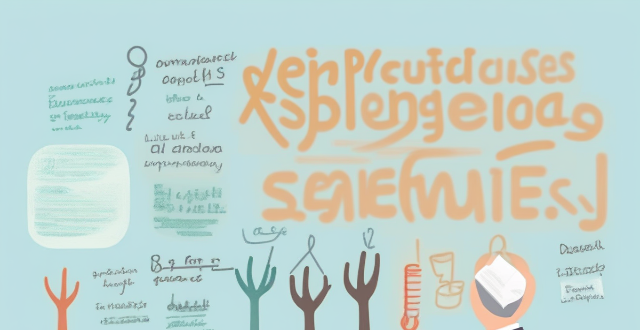
How can students with English as a second language be supported in understanding and applying academic integrity standards ?
The text discusses the importance of supporting students with English as a second language (ESL) in understanding and applying academic integrity standards. It outlines four key strategies for doing so: providing clear explanations, accessible resources, open communication, and extra support. Clear explanations should cover what constitutes academic dishonesty, the consequences of violations, and how to avoid dishonesty. Accessible resources such as glossaries, guides, and videos can help ESL students understand these concepts better. Encouraging open communication between students and instructors can address concerns and questions about academic integrity. Providing extra support through tutoring services, workshops, and peer mentoring programs can further assist ESL students in adhering to academic integrity standards.

What is academic integrity ?
Academic integrity is a fundamental principle governing the conduct of research, teaching, and learning in academic institutions. It encompasses values and ethical standards promoting honesty, fairness, respect, and responsibility among students, educators, and researchers. The goal is to maintain trustworthiness and credibility by adhering to high ethical standards. Core values include honesty, fairness, respect, and responsibility. Key aspects are avoiding plagiarism, fabrication, cheating, multiple submissions, and collusion. Violating academic integrity can lead to loss of reputation, disciplinary action, legal consequences, diminished career prospects, and ethical implications. Adhering to academic integrity promotes a fair and just academic environment.

How has the COVID-19 pandemic affected issues of academic integrity, especially with online learning ?
The COVID-19 pandemic has significantly impacted academic integrity in the education sector, particularly due to the shift to online learning. The increased opportunities for cheating during online examinations and plagiarism are major concerns. Difficulty in maintaining academic integrity standards, potential for misunderstandings and miscommunications, and strategies to address these challenges are also discussed.
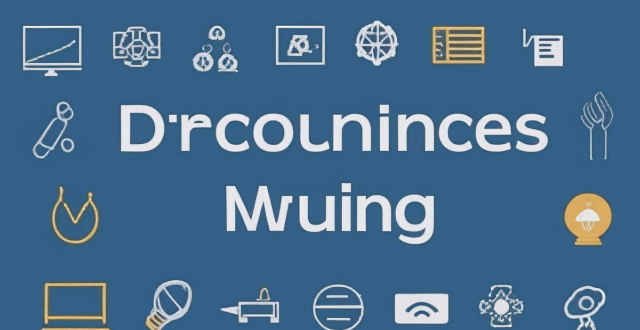
What is the difference between collaborative work and collusion in terms of academic integrity ?
The text discusses the differences between collaborative work and collusion in academic settings. Collaborative work is defined as a transparent process where individuals share ideas, resources, and skills for a common goal, distributing credit fairly and adhering to ethical standards. In contrast, collusion involves deceitful actions like plagiarism or falsifying data, aiming for unfair advantage and often resulting in severe penalties and reputational damage. The distinction is crucial for maintaining academic integrity and promoting an environment of honesty and transparency.

What is the role of peer pressure in maintaining or undermining academic integrity ?
Academic integrity is a commitment to honesty, trust, fairness, respect, and responsibility. Peer pressure can play a positive role in maintaining academic integrity by encouraging ethical behavior, promoting collaborative learning, and providing support and encouragement for students. However, peer pressure can also undermine academic integrity by promoting cheating and plagiarism, disrupting collaborative learning environments, and stigmatizing help-seeking behavior. It is essential to recognize the potential impact of peer pressure on academic integrity and work to foster an environment that supports ethical behavior and discourages cheating and plagiarism.

In what ways does academic integrity relate to professional ethics ?
**Academic Integrity and Professional Ethics: An Interconnected Relationship** The concepts of academic integrity and professional ethics are fundamentally interconnected, sharing principles like honesty, fairness, responsibility, respect, and courage. Academic integrity lays the groundwork for professional ethics by instilling foundational skills such as critical thinking, research integrity, and ethical decision-making. These skills transition from academia to profession, building reputations for reliability and trustworthiness. Therefore, promoting academic integrity is crucial not only for the academic community but also for the broader professional world.

Are there any cultural differences in perceptions of academic integrity ?
The perception of academic integrity can vary across cultures due to differences in values, beliefs, and practices. In individualistic cultures, academic integrity is often viewed as an individual responsibility, while collectivist cultures place more emphasis on group harmony and cooperation. Power distance can also influence perceptions of academic integrity, with high power distance cultures being more reluctant to report instances of academic dishonesty. The concept of time can also play a role, with monochronic cultures prioritizing efficiency over quality, while polychronic cultures focus on building relationships. Attitudes towards rules and regulations can also vary across cultures, with rule-based cultures viewing academic integrity as a set of strict rules, while relation-based cultures view it as something that depends on the relationship between individuals. Understanding these cultural differences can help educators design effective strategies to promote academic integrity among diverse student populations.
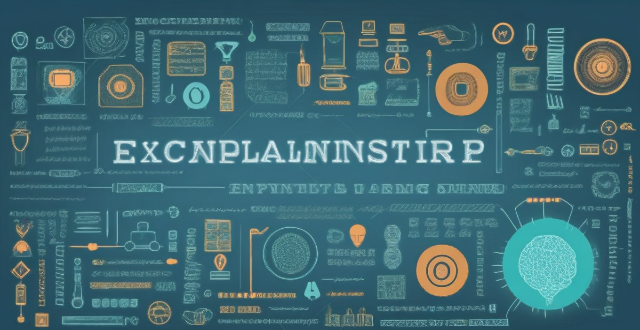
How does academic integrity relate to the concept of intellectual property ?
The text explores the relationship between academic integrity and intellectual property. It defines academic integrity as the core values of scholarly work, including honesty, trust, fairness, respect, and responsibility, which are essential in research, teaching, and publishing. Intellectual property, on the other hand, refers to legal protections that give creators exclusive control over the use of their creations of the mind. The intersection of these two concepts is discussed in terms of respect for original work, protection of ideas, promotion of innovation, and ethical considerations. Both academic integrity and intellectual property laws stress the importance of respecting original work and protecting ideas. They also promote open access and sharing of knowledge while ensuring responsible conduct of research. The text concludes that upholding academic integrity contributes to a robust system of intellectual property that benefits society as a whole.
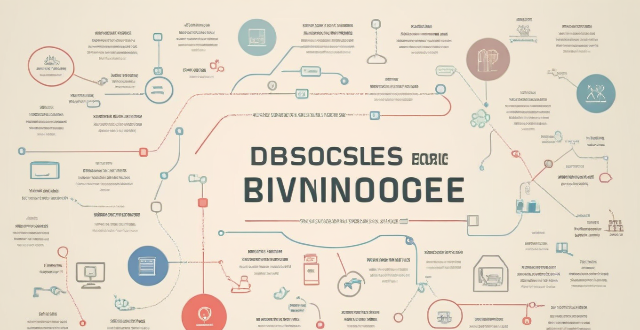
What is the difference between academic and non-academic writing ?
The article discusses the differences between academic and non-academic writing in terms of purpose, audience, style, structure, and language features. Academic writing aims to convey complex ideas and research findings to a specialized audience using formal, objective, and precise language, while non-academic writing focuses on informing, entertaining, or persuading a general audience using informal, subjective, and general language. The structure of academic writing is rigid and includes detailed analysis and extensive citations, whereas non-academic writing has a flexible structure, narrative style, and limited references. Language features also differ, with academic writing using complex sentences, passive voice, and abstract concepts, while non-academic writing prefers simple sentences, active voice, and concrete examples.
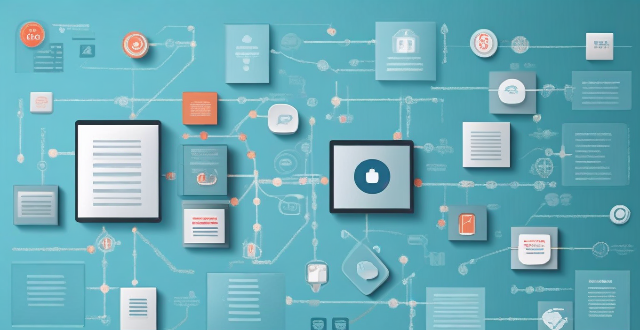
How do wireless communication standards work ?
Wireless communication standards are essential for enabling seamless interactions between devices, and they operate within specific guidelines and protocols. These standards cover areas such as frequency bands, modulation techniques, multiple access methods, error handling, security measures, and compliance testing to ensure interoperability among various devices. Understanding these components is key to grasping how wireless technologies work together to create our interconnected world.

What are the consequences of violating academic integrity principles ?
Violating academic integrity principles can lead to serious consequences on both individual and institutional levels, including academic penalties, damage to reputation, difficulty gaining acceptance into programs or securing employment, emotional distress, and potential loss of accreditation for institutions. It is essential for students to understand the importance of maintaining academic integrity to protect their personal and professional futures, as well as the reputation of their educational institutions.

How do wireless communication standards affect mobile devices ?
Wireless communication standards significantly impact mobile devices' performance, functionality, and user experience. They influence speed and bandwidth, latency, connectivity range, compatibility with different networks, interoperability, security features, battery life, quality of service, mobility and portability, and device form factors. Advances in these standards drive innovation in the mobile industry, leading to faster, more reliable devices offering richer experiences to consumers.
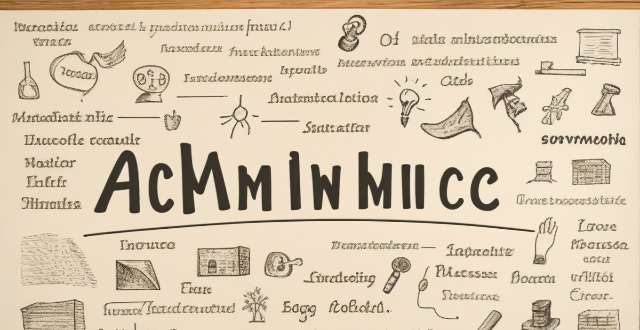
What are some tips for effective academic writing ?
Effective academic writing is essential for success in higher education. To improve your skills, understand the assignment, plan your work, conduct research, write clearly and concisely, use evidence to support arguments, edit and revise your work, follow academic integrity guidelines, use visual aids when applicable, stay focused on the main point, and seek feedback from others.

What are the consequences of ignoring safety standards in construction work ?
Ignoring safety standards in construction work can lead to severe consequences, including risk to human life, project delays, financial losses, reputation damage, legal implications, environmental impact, and public safety concerns. Adhering to these standards is crucial for the well-being of all involved parties and the success of the project.

How do ESG standards affect corporate responsibility ?
ESG standards shape corporate responsibility by providing a framework for measuring and managing company impact on the environment, society, and governance. They require companies to reduce their carbon footprint, ensure sustainable sourcing, promote diversity and inclusion, engage with communities, maintain ethical business practices, and encourage board diversity. Adhering to these standards demonstrates commitment to sustainability and social responsibility, leading to long-term success and profitability.

How do building energy efficiency standards vary across different countries ?
The article discusses building energy efficiency standards and their global variations, influenced by factors like climate, economics, technology, government policies, and cultural preferences. It highlights the importance of these standards in sustainable development and reducing carbon emissions in the built environment. The text emphasizes that understanding these variations is essential for collaborative efforts and knowledge sharing as the global community strives towards decarbonization and sustainability goals.
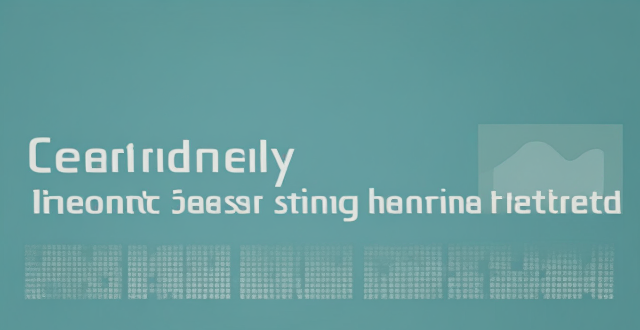
How do international standards and certifications affect industrial energy efficiency practices ?
International standards and certifications significantly influence industrial energy efficiency practices by setting uniform benchmarks, driving innovation, enhancing reputation, promoting transparency, supporting regulatory compliance, and leveraging resource efficiency. These standards provide a framework for continuous improvement, drive technological advancements, expand market opportunities, ensure accountability, align with policies, reduce waste, and offer cost benefits. As sustainability becomes a global priority, adherence to these standards will be crucial for industrial competitiveness and success.

How do building energy efficiency standards impact the environment ?
**Summary:** Building energy efficiency standards positively impact the environment by reducing greenhouse gas emissions, conserving natural resources, enhancing air quality, and promoting energy innovation. These standards lead to more energy-efficient buildings, reduced dependence on fossil fuels, cleaner air, and advancements in sustainable technologies.

What are the long-term effects of breaches in academic integrity on one's career ?
The long-term effects of breaches in academic integrity can be severe and far-reaching, including damaged reputation, limited career opportunities, and potential legal consequences. It is essential for students, researchers, and educators to uphold the principles of academic integrity to ensure the success of their careers and the integrity of their respective fields.

Can you give examples of academic dishonesty ?
Academic dishonesty refers to any behavior that compromises the integrity of academic work. It can take many forms, including cheating, plagiarism, falsification of data, and improper collaboration on assignments. Such actions not only undermine the trustworthiness of academic institutions but also hinder students' learning and development. Some examples of academic dishonesty include using cheat sheets or notes during exams, copying from others, using unauthorized devices, impersonation, submitting another's work as your own, unauthorized collaboration, direct plagiarism, mosaic plagiarism, fabrication, manipulation, selective reporting, group assignments as individual work, and unequal contribution. Engaging in academic dishonesty can lead to serious consequences, such as failure of the assignment or course, suspension or expulsion from school, and damage to reputation and future opportunities. It is essential for students to understand the importance of academic integrity and the long-term impact of their actions. By maintaining honesty in their academic pursuits, they ensure a fair and trustworthy educational environment for all.

How do celebrities influence fashion trends and beauty standards ?
Celebrities significantly influence fashion trends and beauty standards through their endorsements, red carpet appearances, social media presence, and collaborations with designers. They set trends by making innovative style choices and promoting self-care and wellness. However, their influence is not without controversy, as some argue it leads to unrealistic beauty standards and cultural appropriation.

Can sports improve academic performance in adolescents ?
Sports can positively impact academic performance in adolescents by improving physical health, mental well-being, and social skills. Studies show a positive correlation between sports participation and academic achievement, with athletes often achieving higher grades and increased college admission rates. However, individual differences and external factors must also be considered when evaluating this relationship.
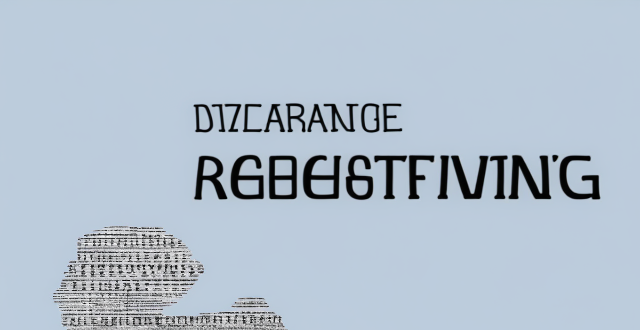
How can students maintain academic integrity in their studies ?
The text discusses the importance of maintaining academic integrity in education and outlines several ways for students to do so. It emphasizes understanding the concept of academic integrity, adhering to school policies, citing sources properly, avoiding plagiarism, being honest in assessments, respecting intellectual property rights, maintaining confidentiality, reporting incidents of misconduct, and seeking help when needed. The text concludes that maintaining academic integrity is crucial for students to achieve success in their academic pursuits and beyond.

What are the benefits of participating in academic competitions ?
Academic competitions offer numerous benefits, including improved academic performance through increased knowledge and developed study habits, personal growth and development through confidence building and public speaking skills, and opportunities for recognition and rewards such as scholarships and job opportunities. Participation in these competitions can also lead to networking opportunities and recognition from schools and universities. Overall, participating in academic competitions is a great way to challenge oneself and open doors to future opportunities.

What are some common mistakes to avoid in academic writing ?
Avoid common mistakes in academic writing, such asAvoid common mistakes in academic writing, such as, lack of clarity and precision overuse of passive voice, inappropriate word choice, failure to proofread, and ignoring feedback. These pitfalls can make your writing less effective and professional. By avoiding them, you can improve the quality of your academic writing and better convey your research and ideas to your audience.

How do academic competitions contribute to a student's overall development ?
This article discusses the benefits of academic competitions in contributing to a student's overall development. It highlights how these competitions enhance academic achievement by boosting confidence, developing critical thinking skills, and encouraging independent learning. The article also emphasizes the role of academic competitions in promoting personal growth by building resilience, promoting teamwork, and developing time management skills. Furthermore, it points out how these competitions contribute to professional development by exploring potential career paths, gaining recognition and awards, and expanding networking opportunities. Overall, the article concludes that participating in academic competitions provides students with valuable experiences that can benefit them throughout their lives.

How do academic competitions impact a student's future career prospects ?
Academic competitions play a crucial role in shaping students' future career prospects by developing essential skills, providing networking opportunities, and offering recognition and awards. These competitions foster critical thinking, time management, collaboration, and teamwork, which are highly valued by employers across all industries. Participating in academic competitions also allows students to connect with industry professionals and build professional relationships with their peers and competitors. Winning or performing well in these competitions can boost a student's resume and attract scholarships and grants for further education. Overall, academic competitions provide valuable experiences that can help students stand out to potential employers and lay the foundation for a successful career in their chosen field.
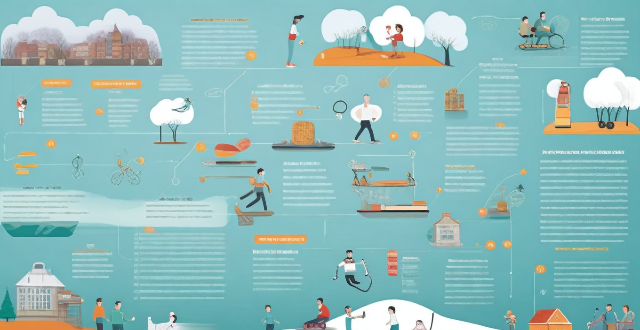
Is there a correlation between sports participation and academic performance ?
The article explores the correlation between sports participation and academic performance. It highlights the potential benefits, such as improved time management skills, increased motivation and discipline, and enhanced social skills, but also acknowledges the potential drawbacks, including time constraints, fatigue, pressure, and stress. The conclusion emphasizes the importance of finding a balance between sports commitments and academic responsibilities for optimal performance in both areas.

How have building energy efficiency standards evolved over time ?
The evolution of building energy efficiency standards has been significant over the years, with a focus on reducing energy consumption and environmental impact. Early beginnings saw little consideration for energy consumption, leading to high utility bills and greenhouse gas emissions. The rise of energy conservation in the 1970s led to the development of the first building energy efficiency standards, focusing on measures such as improved insulation and efficient heating and cooling systems. The advent of green buildings in the 1990s brought new standards that minimized environmental impact through the use of renewable energy sources and sustainable materials. Technology has played a significant role in improving energy efficiency, with advances such as smart thermostats and LED lighting. Looking to the future, there is likely to be a greater emphasis on reducing energy consumption in buildings, leading to stricter standards and the development of new technologies. Overall, building energy efficiency standards have evolved to become an essential part of modern building design and construction.

Are there specific sports that improve academic performance in children ?
The article discusses the potential benefits of different types of sports on academic performance in children. It highlights team sports like basketball, soccer, and volleyball for their ability to teach social skills, time management, and discipline. Individual sports such as swimming, tennis, and gymnastics are noted for promoting self-discipline, goal setting, and mental toughness. Outdoor sports like hiking, cycling, and rock climbing are mentioned for providing physical activity, stress relief, and exploration opportunities. The conclusion emphasizes the importance of considering individual differences among children when encouraging sports participation for academic improvement.